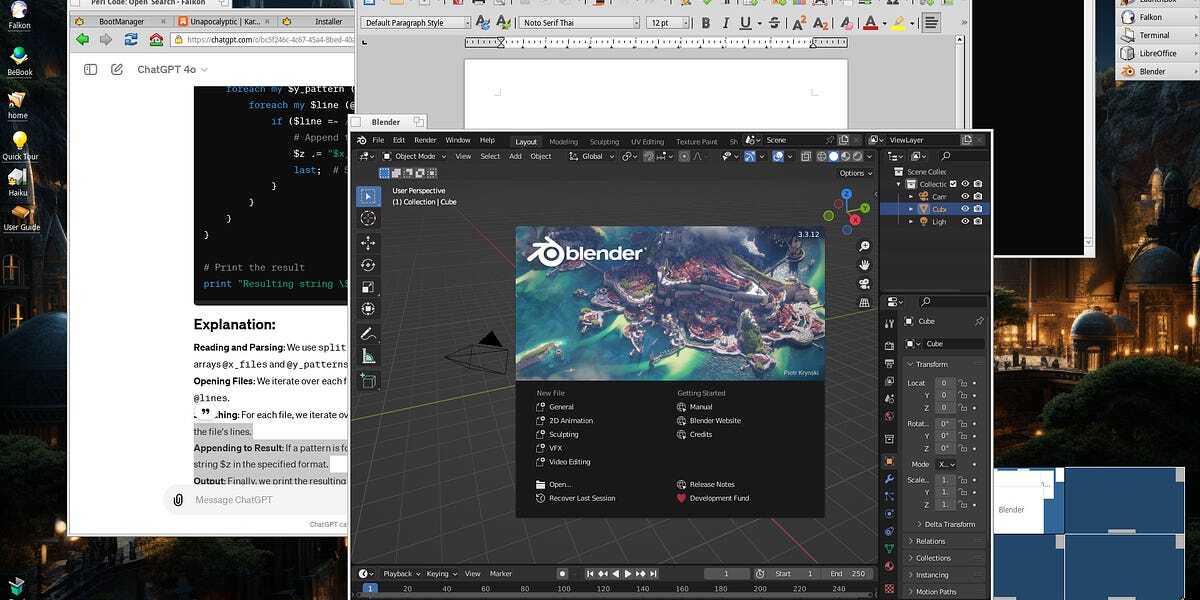For those who don’t want to read the article to find out, the great saviour OS is Haiku, apparently.
Haiku (operating system)
https://en.m.wikipedia.org/wiki/Haiku_(operating_system)Haiku, originally OpenBeOS, is a...
… free and open-source operating system for personal computers. It is a community-driven continuation of BeOS and aims to be binary-compatible with it, but is largely a reimplementation with the exception of certain components like the Deskbar.[7] The Haiku project began in 2001, supported by the nonprofit Haiku Inc., and the operating system remains in beta.
I think Haiku looks pretty cool, but this is kind of like comparing a car with all kinds of features to something with 3 out of 4 wheels, a cobbled in dining room chair, and no doors. The engine is also cool, but the transmission only has 2 gears.
Haiku doesn’t have nearly the feature parity to replace Windows, and it took Linux the better part of 30 years to get there.
This article doesn’t really make sense to me.
The author talking about how difficult Linux is
Suddenly, I need the skills of a system administrator to resolve the issue—skills I don’t have. Now remember, I’ve been programming computers since 1980; I’ve written code in COBOL, APL, Fortran, BASIC, SNOBOL, LISP, and Perl. I’ve built my own PCs, configured domain names to activate websites, set up dual-boot systems, and hacked the Windows registry. I’ve worked in UNIX and VMS and mainframes, and was one of the first hundred or so users of the World Wide Web, back when it was a command-line program for accessing physics preprints at CERN.
I have half of that experience but have been able to install and run Arch without being defeated. And I installed Mint awhile ago and had an even easier time with that. I understand the underlying complaint that it’s built on the CLI which can be hard to get used to, but still…
BeOS could do things in 1995 that Windows, Linux, and MacOS can’t do in 2024. (Try load-balancing the individual threads of your running programs, or switching processors on or off whenever you want.)
I… guess? Would the average person want to do that? I thought this was supposed to be for the average person who isn’t allowed to poke around and break everything easily.
The OS itself has been rock solid, although it doesn’t recognize my sound card, and some apps have crashed. The experience takes me back to the early days of Linux distros, except that the core desktop functionality is spectacularly well-designed and consistent. Haiku is as easy to use as Windows ever was.
-_-
For that to happen, Haiku has to mature. It needs to become stable enough for daily use (in my experience, it already is) but also be usable on a wide variety of modern systems, and that means more device drivers for, for instance, my sound card. The project needs more than one full-time developer; for this, they need money. This is where we can come in.
So yeah, it sounds like a cool project. I might even try it out. It sounds like porting programs from Linux to Haiku is easy, so I don’t see why they can’t coexist at least. But this article just seems to contradict itself and is promoting an OS that the average person isn’t going to be able to intuitively or easily use for probably a long time.
One that isn’t Linux? Nope. It has to be Linux. Everything else sucks an nobody should use stuff that sucks instead of stuff that sucks extremely when something is available that at most sucks a tiny bit.
People have grumbled and put up with Big Tech privacy invasions before, but I wonder if this time is different. Microsoft’s plan for Windows with AI sounds deeply unappealing. The idea of an AI tracking everything you do on your computer might be a red line for many people. Microsoft promised that they wouldn’t harvest or use the data, but that promise has been broken so many times by Big Tech, that many have lost trust.
This article is an interesting look at an alternative path for a private open-source desktop OS. Interestingly, although it’s Linux-compatible, it’s not Linux, and OP says it’s superior.
I suspect lots of people will do more than grumble this time around, and the backlash against AI, data harvesting, and the loss of privacy will grow.
My trust doesn’t just stop at tech companies …it’s extended to basically any company at this point.
I’m excluding myself from society.
The idea of an AI tracking everything you do on your computer might be a red line for many people.
I wish I was that optimistic but convenience and ‘vendor lock in’ are a hell of a drug.




